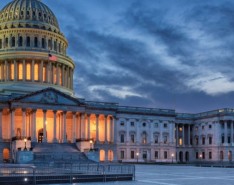Washington, D.C. (September 7, 2021)—It is with regret that the National Association for Home Care & Hospice (NAHC) must announce the cancellation of the 2021 Home Care and Hospice Conference and Expo, originally scheduled for Oct. 3-5, 2021, in New Orleans.
This decision was not made lightly, and we are enormously grateful for the support so many people showed for the homecare and hospice community by registering to join their fellow industry leaders at the conference.

